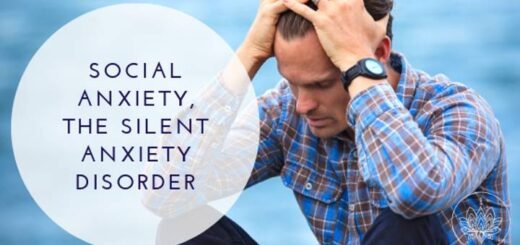Community Support: Easing Social Anxiety in NZ
In New Zealand, community support plays a vital role in empowering individuals with social anxiety, often referred to as social phobia. Various groups and initiatives provide safe spaces for sharing experiences and fostering resilience among those affected. By connecting individuals facing similar challenges, these communities help to build a sense of belonging and understanding, crucial for overcoming social phobia resilience.
One notable resource is the Social Phobia New Zealand platform, which showcases real stories from Kiwis who have navigated their journeys with social anxiety. These narratives not only inspire hope but also demonstrate the importance of collective strength in enhancing social phobia resilience. Through shared experiences and mutual support, individuals are empowered to confront their fears and thrive within their communities.
The Importance of Community Support for Social Anxiety in New Zealand
Community support plays a crucial role in empowering individuals with social anxiety. In New Zealand, where the culture emphasizes connection and collaboration, various groups have emerged to provide a safe haven for those grappling with social phobia. These groups offer a structured environment for individuals to share their experiences, gain insights, and learn coping strategies. By fostering an atmosphere of understanding and acceptance, community support helps reduce feelings of isolation. This approach not only validates the struggles of those affected but also encourages resilience, allowing individuals to face their social fears head-on. Organizations like Social Phobia NZ are instrumental in this journey, providing resources and guidance that promote social phobia resilience among members.
Peer Support Groups: Sharing Experiences and Building Connections
Peer support groups are a cornerstone of community support for those with social anxiety in New Zealand. These groups bring together individuals who share similar experiences, creating an environment where participants can openly discuss their challenges without fear of judgment. In cities like Wellington and Auckland, numerous peer groups cater to various demographics, including young adults and older individuals.
For instance, the Wellington Anxiety Support Group meets bi-weekly, allowing members to develop rapport and trust over time. Participants often share personal stories and coping mechanisms, fostering a sense of belonging. Through structured activities such as role-playing and relaxation techniques, participants can practice social skills in a supportive setting. This method not only enhances social phobia resilience but also cultivates lasting friendships that extend beyond group meetings.
Workshops and Skill-Building Activities
Workshops and skill-building activities provide practical tools for managing social anxiety effectively. Many organizations in New Zealand, such as Social Phobia NZ, offer workshops that focus on enhancing communication skills, managing anxiety symptoms, and building self-esteem. These sessions often involve interactive activities, allowing participants to practice new skills in a controlled environment.
For example, a recent workshop in Christchurch focused on assertiveness training. Participants learned how to express their needs and feelings confidently, an essential skill for navigating social situations. By engaging in role-playing scenarios, attendees gained valuable feedback from facilitators and peers, reinforcing their ability to cope with anxiety. Such workshops not only equip individuals with necessary tools but also foster community connections, making them feel less isolated in their struggles.
Online Communities: Expanding the Reach of Support
In our increasingly digital world, online communities have become an invaluable resource for those with social anxiety. Many New Zealanders find it challenging to attend in-person meetings due to their anxiety; therefore, online platforms provide an alternative means of connection. Forums, social media groups, and dedicated websites create an accessible space for individuals to share their experiences and seek advice.
For instance, the Social Phobia NZ website features an active forum where members can post questions, offer support, and share resources. This virtual community allows members to connect with others across the country, fostering a sense of belonging regardless of geographical limitations. Online communities also enable individuals to engage at their own pace, reducing the pressure often associated with face-to-face interactions. This flexibility can significantly enhance social phobia resilience, empowering people to seek help when they need it most.
Building Awareness and Reducing Stigma
Community support groups in New Zealand also play a vital role in raising awareness about social anxiety and reducing the stigma associated with it. By organizing events such as Mental Health Awareness Week, organizations encourage conversations around social phobia and its impact on individuals’ lives.
These events often include workshops, guest speakers, and informational booths that educate the public about social anxiety and its symptoms. By fostering understanding, these initiatives help to dismantle misconceptions about mental health, making it easier for those suffering from social phobia to seek help. For example, a recent initiative in Auckland saw local businesses partnering with mental health organizations to promote awareness, creating a more supportive environment for individuals with social anxiety. Such community engagement not only boosts social phobia resilience but also cultivates a culture of acceptance.
Access to Professional Support: A Complement to Community Efforts
While community support is invaluable, access to professional help remains a crucial component in managing social anxiety. In New Zealand, many organizations collaborate with mental health professionals to provide members with access to therapy and counseling services. This partnership ensures that individuals receive comprehensive support tailored to their unique needs.
For instance, some community groups offer referrals to clinical psychologists who specialize in treating social anxiety. These professionals can provide evidence-based interventions, such as Cognitive Behavioral Therapy (CBT), which has proven effective in alleviating symptoms of social phobia. By integrating professional support into community initiatives, individuals can develop a multi-faceted approach to their mental health, enhancing their overall resilience. Access to resources from organizations like Social Phobia NZ further empowers individuals to take proactive steps in managing their anxiety.
Success Stories: Inspiring Change Through Community Support
Sharing success stories within community support groups can be incredibly empowering for individuals with social anxiety. Hearing firsthand accounts of others who have faced similar challenges can inspire hope and motivate individuals to take steps toward their recovery. In New Zealand, many groups actively encourage members to share their journeys, celebrating achievements—big and small.
For example, a member of a peer support group in Hamilton recently shared how they overcame their fear of public speaking through practice and encouragement from fellow members. Their story resonated with many in the group, inspiring others to face their social fears. These narratives not only highlight the effectiveness of community support but also reinforce social phobia resilience. By showcasing real-life examples of overcoming obstacles, community groups foster a culture of empowerment and positivity, reminding individuals that they are not alone in their journeys.
FAQs
What is social anxiety and how does it affect individuals in New Zealand?
Social anxiety, or social phobia, is characterized by an intense fear of social situations, leading to avoidance behaviors that can significantly impact daily life. In New Zealand, individuals with social anxiety may struggle with forming relationships, participating in community activities, and pursuing career opportunities, ultimately affecting their overall well-being.
How do community support groups help those with social anxiety in New Zealand?
Community support groups in New Zealand provide a safe space for individuals with social anxiety to share their experiences, learn coping strategies, and connect with others facing similar challenges. These groups foster a sense of belonging and encourage participants to gradually confront their fears, promoting social phobia resilience.
What types of activities do these support groups offer?
Support groups often organize various activities, including workshops, group therapy sessions, social outings, and skill-building exercises. These activities aim to create a supportive environment where members can practice social interactions and build confidence in a gradual, non-threatening way.
Can professional therapists be involved in community support for social anxiety?
Yes, many community support groups collaborate with licensed therapists to provide professional guidance. These therapists can offer valuable insights and therapeutic techniques that enhance the group’s effectiveness in helping individuals develop social phobia resilience.
How can someone find a support group for social anxiety in New Zealand?
Individuals looking for support groups can start by searching online for local mental health organizations, community centers, or helplines in New Zealand. Websites and social media platforms often list upcoming meetings and resources, making it easier to connect with peers and support networks.
Are there any success stories from participants in these support groups?
Yes, many participants have reported significant improvements in their social skills and overall confidence after joining support groups. Success stories often highlight personal growth, increased participation in community activities, and the development of lasting friendships, all contributing to greater social phobia resilience.
What role does public awareness play in supporting individuals with social anxiety?
Public awareness is crucial in reducing stigma and promoting understanding of social anxiety. By educating the community about the challenges faced by individuals with social phobia, we can foster a more inclusive environment that encourages empathy and support, ultimately enhancing the effectiveness of community support initiatives.
References
- Social Anxiety Support New Zealand – A dedicated resource providing information, support, and community connections for individuals experiencing social anxiety in New Zealand.
- Mental Health Foundation of New Zealand – Offers research and insights on social anxiety, emphasizing the importance of community support in overcoming challenges.
- Te Papa Tongarewa (Museum of New Zealand) – Discusses community initiatives and their impact on mental health, including social anxiety support.
- Australian & New Zealand Mental Health Association – Provides resources and information on mental health issues, including the role of community support in addressing social anxiety.
- New Zealand Ministry of Health – Outlines community mental health services available in New Zealand, highlighting how these services empower individuals with social anxiety.




